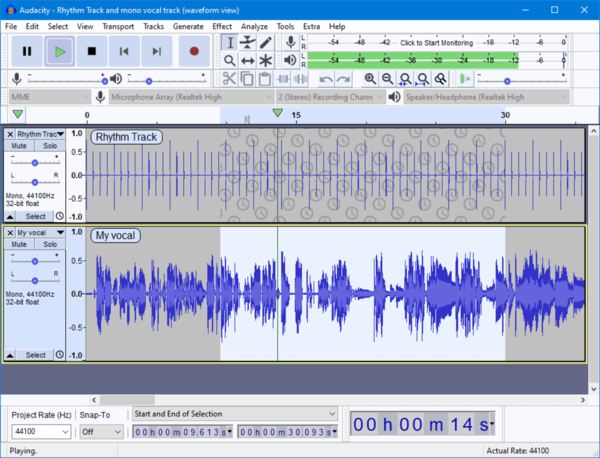
(Denisse Leon/Unsplash)
I think that most people who work with Audacity, the popular audio-recording tool, don’t actually care that much about the whole licensing debate. Or if they do, it’s because they read a headline on the internet that freaked them out.
https://bsky.app/profile/shortformernie.bsky.social/post/3l7ojiobqjc25
But when the cries of “Audacity is Spyware” went blazing across the internet over the weekend, I think some wires got crossed. The problem is this: When the average person thinks of “spyware,” they think of Kazaa, or Bonzi Buddy, or the Gain AdServer that was attached to a bunch of installers on Windows in the late ’90s. The idea is that it’s malware under a different name basically.
The problem is, the free and open source (FOSS) community is really passionate about their tools, and Audacity is a good one that they don’t want to lose to the gods of commercialism. Audacity, however, was recently sold, and the sale has not gone over well with the FOSS crowd for obvious reasons.
So users were already sensitive to the potential impact this sale was going to have on podcasters everywhere. And the Audacity team had the audacity to phrase this major change in an incredibly awkward way. Still, by non-FOSS standards, calling what they’re doing “spyware” is a bit of a leap.

Shoshana Wodinsky, a Twitter pal of mine who writes for Gizmodo, tried to carefully thread this needle, pointing out that if Audacity was treated as a traditional piece of commercial software, most people wouldn’t blink because we’re used to stuff like this from the apps we use.
“In the grand scheme of things, you’re likely already using products that share troves more data than Audacity does without a second thought,” she says.
Wodinsky recommends expanding the target to all apps that spy on users in this way, and I think that’s a fair approach given the circumstances. The fact Audacity was willing to do this is a reflection that it’s commonly accepted among commercial software developers.
My ultimate feeling on this whole saga is that Audacity’s maintainers screwed up and its new owners need to do some serious work understanding the community they just purchased so that they don’t get the wrong idea. Because in the case of FOSS, they didn’t really buy an app. They bought a community—and that community is in a world that cares about things like licensing and freedom.
And to regular folks—keep in mind that FOSS enthusiasts are filtering their feelings through their point of view, and that point of view is by its nature more hardline than the regular user’s. That’s just how it is.
The difference is that they have the audacity to speak up about it.
Time limit given ⏲: 20 minutes
Time left on clock ⏲: 1 minute



